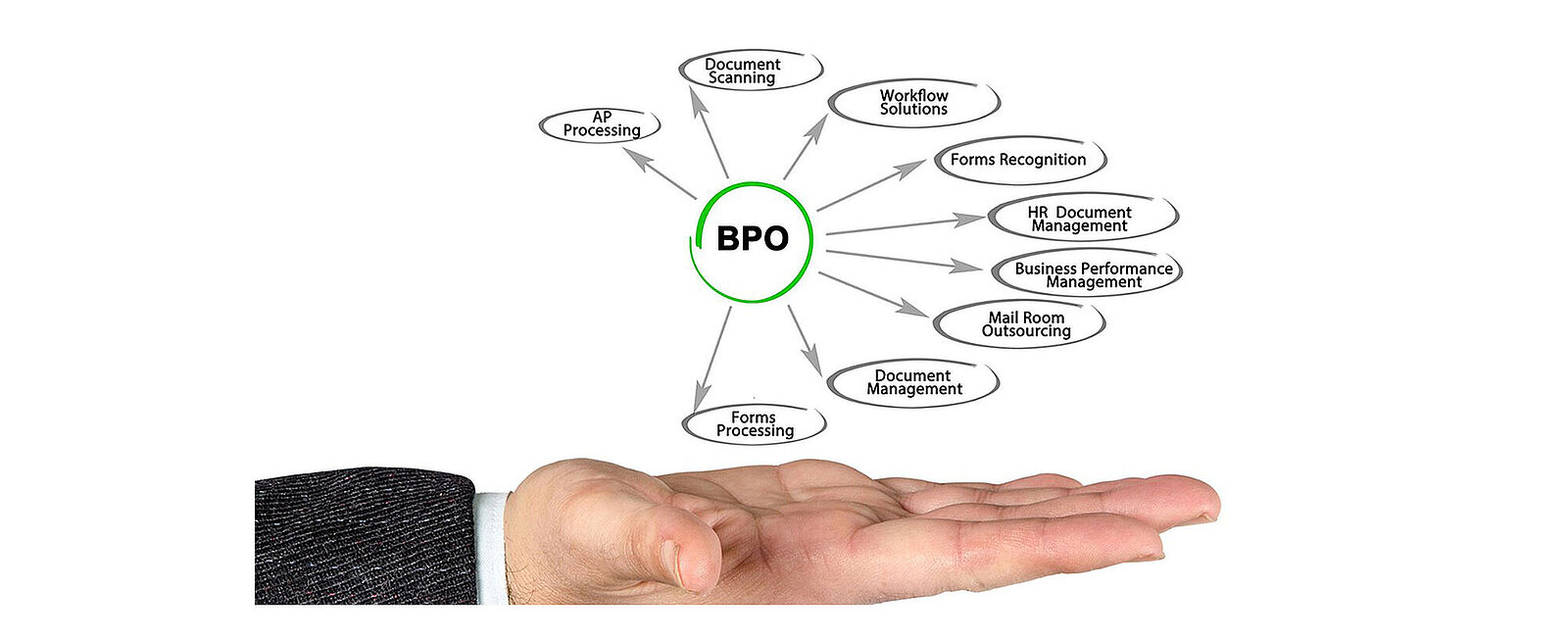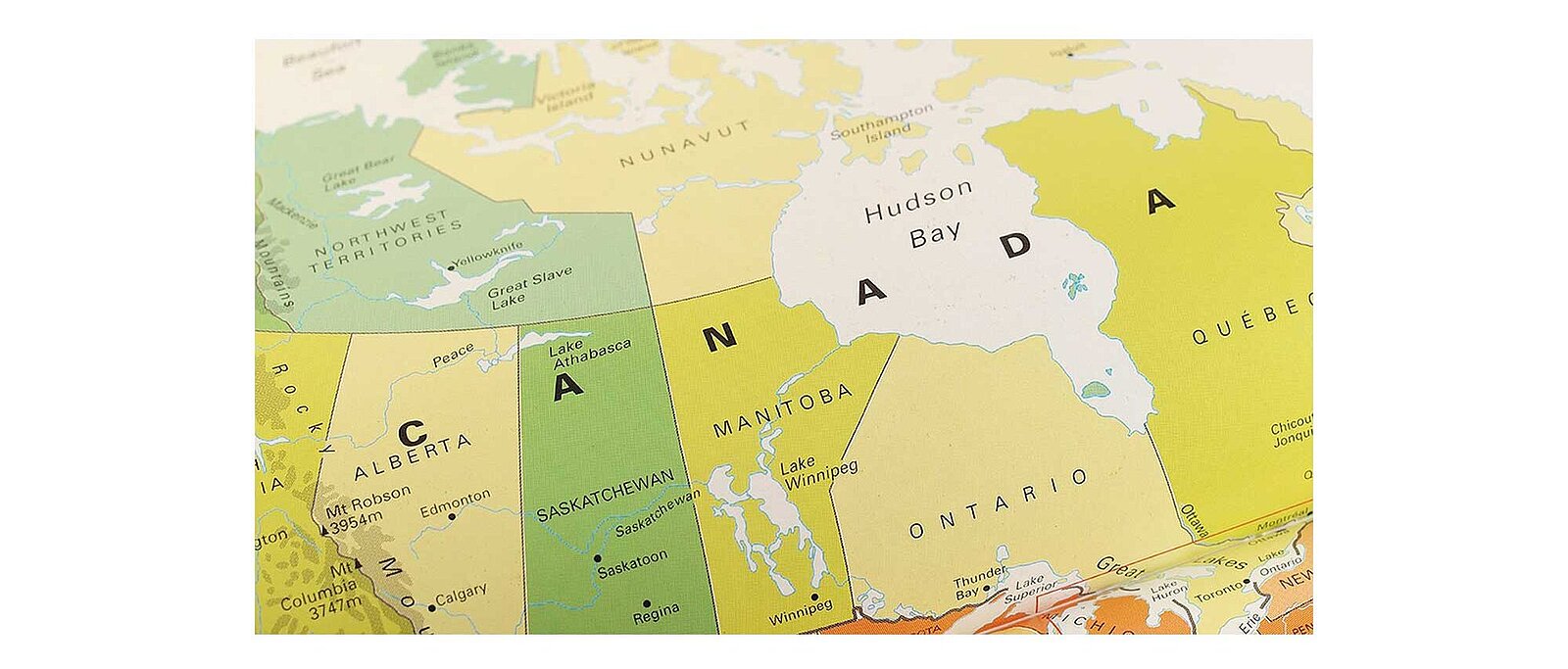From document repositories to process automation: TCG Canada forges a successful path
Interview with Patrick Galamé , TCG Managing Director from Montreal
You were introduced to TCG by a partner organization. How did you end up running the organization in Canada?
I’ve been in the document capture and process automation market for some time now. I started with a computer manufacturer that was around before the [personal computer] PC era; the company was Wang Labs, and they were an early developer of technologies for document scanning.
Throughout my career in the industry, I became friends with Paul Van Coillie, one of the eventual investors of TCG Canada. We originally collaborated on a project in Montreal when he was part of a company called ARCO, which is a document management firm that partners with TCG in Europe and in North America, and we became friends throughout that time. We would often share ideas on development, how the market was changing, and how my employer and his could do more work together.
Though I left that company in Montreal about 10 years ago, Paul and I kept in touch. A little over two years ago, Paul brought me up to speed on TCG and its founder, Arnold von Büren, over dinner one night. I remembered Arnold from his time as Kofax CEO, and knew he was a guy you can trust. Additionally, as I was working for a competitor (T2I), I had heard about the DocProStar product -- which in my mind filled a need in the rapidly changing process automation market.

Over the course of this dinner, Paul and I discussed the possibility of me working with Arnold to bring TCG to Canada as the TCG organization expanded. It was, of course, also good for Paul as he would be stealing me away from his competition.
You know, you try at some point in your career to ensure you enjoy the people you work with and with whom you share the same vision. To me, it’s just as important as the technology you’re representing.
How did your background help with TCG entering the market?
I like to say that I have been in this market before it existed. I’ve seen the evolution from basic scanning and OCR and that kind of system, to full text management software -- which was a key differentiator in the early 90s, but doesn’t mean anything today. More importantly, I realized that once the scan-to-archive industry was booming, the repository was truly only 10% of the challenge companies were experiencing. People and organizations needed access to the information on the documents in the archives.
In one of the first TCG Canada customer deployments, a BPO leveraged our software to scan a large amount of HR documents (10M pages) for their customer. The BPO delivered this huge volume of .pdfs to the customer, who was happy, but immediately responded “I need the information from these documents, too.” They came back to TCG and we were able to help our BPO partner create additional value by gathering unstructured, identifiable data from those documents that their client could use.
In the early 2000s, people would say to me that the document management era was over because everything is going electronic. But we know now -- 20 years later -- it’s more important than ever.
Companies remain overwhelmed with documents that take too long to process, and still have to manage information coming from various places in various formats. These companies often don’t know that information is coming into the organization, or how it can best be put to use.
They haven’t even tackled the incoming documents, and we now are receiving social media and other types of digitally-generated data as additional channels to ingest and understand. The problem is just compounding.
I also knew I could bring good advice to TCG on how to develop the Canadian market and the kind of operation TCG would need to successfully support the large Canadian market and ensure a happy customer base.
What has been the overall impression of prospects and partners on TCG entering the Canadian market?
Well, it has been a long term process to educate the market, and train people on the differences between scan-and-store solutions versus a real need for capture with process automation.
Originally our strategy was to focus on partners to serve the Canadian market, which is a large country geographically, with many people -- it’s hard for any company to be everywhere at the same time. I wanted to build a reliable network of partners to train and help to develop their own business utilizing the TCG platform.
What you see a lot in this market is that partners and customers expect the software vendor to provide at least some level of outsourced services. This could be anything from opening and scanning incoming mail, to scanning and validating data capture. We have been in the process of educating the Canadian market that we can do so much more that is of even greater benefit.
Here’s a great example: two weeks ago, we had a demo with a partner in Montreal for a government organization opportunity. The request was to fill a basic need of scanning envelopes and barcodes and information printed on the envelope. We confirmed that we could handle this basic requirement, but then spent just 30 minutes to explain what other options are available. As we demonstrated a banking customer process utilizing facial recognition to validate identity, we could see their understanding of the platform change. It was a revelation to them that TCG could do both - process simple items like envelopes and also do complex analysis, matching and workflow. This prospective customer then decided to rework their digital/virtual needs because the envelope processing was just the tip of the iceberg. Of course, there is a whole process behind the content of the envelopes, too, as envelopes contain multiple types of identification for this government’s constituents.
Sometimes we’ll encounter technology fatigue, as partners will think of TCG as another European company trying to come into the North American market. I work hard to change this mindset and help them to understand the new opportunities this TCG platform makes possible, and just how flexible it is to help them meet requirements. It’s unlike any other product on the market. This product is so feature rich, and there are so many possibilities, it’s hard to get a feel for capacity because it has so much applicability to most processes.
We’ll often get asked “what makes you different from the competition?” And my answer is two-fold.
TCG puts a focus on the data that comes into your organization as it will increasingly be so much more than just documents; second, the TCG platform does not require you to develop any code.
In the short time in this market, you have been successful in getting some large, strategic customers. Please explain the types of customers and the types of applications the TCG solutions are automating for this market.
As I mentioned, our strategy has been to focus on partners. We have recently closed a large opportunity with a BPO out of Toronto, for a government client. This particular deployment will be for very large volumes of information, which is truly where the TCG platform shines. The BPO’s customers are mostly government agencies - both provincial and federal.
One of our most recent deployments with this partner began just before the Covid-19 pandemic, and it allowed their client to continue their day-to-day operations even while a stay-at-home order was in place. With this new implementation, document classification of almost thirty different document types is automatic, and the processors can review any exceptions from their homes which then automatically sends that information on to the right person in the organization, electronically.

We also have partners that act as more of an integration partner, who often implement TCG’s DocProStar platform in their own activities; for example we have a partner in Montreal who is active in AP automation deployments. These may be smaller implementations, but still provide huge value to the customer.
What are the plans for growth in the market? Will it be a direct model, a partner model or a combination of the two go to market strategies?
It will be a combination of direct and channel, but we will drive business mostly through partners. We do have to consider the direct market at times, but this will always be done in good faith collaboration with our partners. When the time comes to decide on a direct business plan, we will work together with our partners to determine what is protected, and clearly communicate how we draw the line to ensure it is a win-win for all parties. Communication and transparency will be an important piece of that puzzle.
The Canadian market is almost like 3-4 different markets all in the same country. How do you see the breakdown of the market and how can the TCG technology help in each area?
Toronto is half of the economy of Canada, so we have focused on Ontario first. Toronto is also where most banks, insurance companies, and service companies are based, as well as the government of Ontario.
Quebec is a different market; we have a French-speaking team as well, which ensures we can provide good support in both markets.
Of course, the federal government is in Ottawa and we manage most of these opportunities through our partners.
So far, we haven’t explored a large volume of business on either coast. In Western Canada; it’s definitely different verticals: oil and gas in Alberta, more services-focused in British Columbia. The oil and gas business is difficult but changing -- these organizations need to identify cost savings but spend can be tough. On the eastern coast, Nova Scotia and New Brunswick has a big shipping and maritime community. This is an opportunity, and we are confident we can build a reliable business there -- but there exists a very different mindset in that part of the country. They are closer to Europe and therefore have a more European approach to business.

What do you think is the next major trend in business process automation that people should be paying attention to today?
Of course there is lots of discussion ongoing around robotic process automation [RPA] and bots in general, and we have a great approach with the way we connect RPA with document processing. But I think the real game-changer in 2020 is the Covid-19 pandemic.
There is a growing corporate realization that people will need to work remotely, which means digital data and documentation.
In Canada, many businesses struggled for the first two months of this crisis before they were able to start to conduct normal business activities with employees working from home. Companies will finally realize that they have no way out from implementing workflows and electronic processes, and will try to automate as much as possible. Enterprises need to be able to give access to information to their people in a smart way.
We heard recently from the federal government in Canada that they’ve asked their task force to remain home, and some employees will likely be working from home on a permanent basis. Sooner or later there will be a second wave or a new virus - maybe two, three or five years from now - and companies have no choice but to ensure business continuity by providing remote employee access to information.
TCG is well positioned for this change; we have a top-of-the-line product carrying all of the most interesting and required features for work-from-home scenarios. Our R&D team continues to develop user-friendly features and add modern technology, thereby consistently improving the process automation offering.
I think people are enjoying this trend, actually. The work from home experience has been positive for many people, and I think providing an option for both will help companies recruit in the future.
Please share a funny story that customers or partners can read that would give them an insight into the culture of TCG.
Just a few weeks after I joined TCG in 2018, they held a company-wide meeting in one of the nicest areas of Portugal. Arnold flew in the TCG team from across the world - from Brazil, Chile, Germany and Switzerland - and the agenda focused on sharing information, discussing new projects and product development planning. I remember thinking “what an amazing time to join a really amazing company.” This has now become an annual gathering, though our 2020 event will likely have to be online. We will get back to it in 2021.
When I met everyone in 2018, I was struck by the culture of the group. TCG has the spirit of a small company with very high expectations for performance. We know that our “playground” is the world, we have a worldwide opportunity with a world-class product. These meetings ensure we all know who to reach out to with questions, that we know one another by face and name, and are always exploring ways we can help each other. It says a lot about the spirit of the company, and it says a lot about Arnold and the company that he wanted to build - a company with pride in itself and its products, and one that outperforms the competition in culture and in solutions.
What do you like to do in your free time?
I am a classical guitar player, my favorite player is a guy by the name of Julian Bream. I’ve been playing for a number of years now, and it’s a nice hobby to rely on during these stressful times. I’ll even pick up the guitar between meetings, to change focus particularly when something isn’t going my way.
